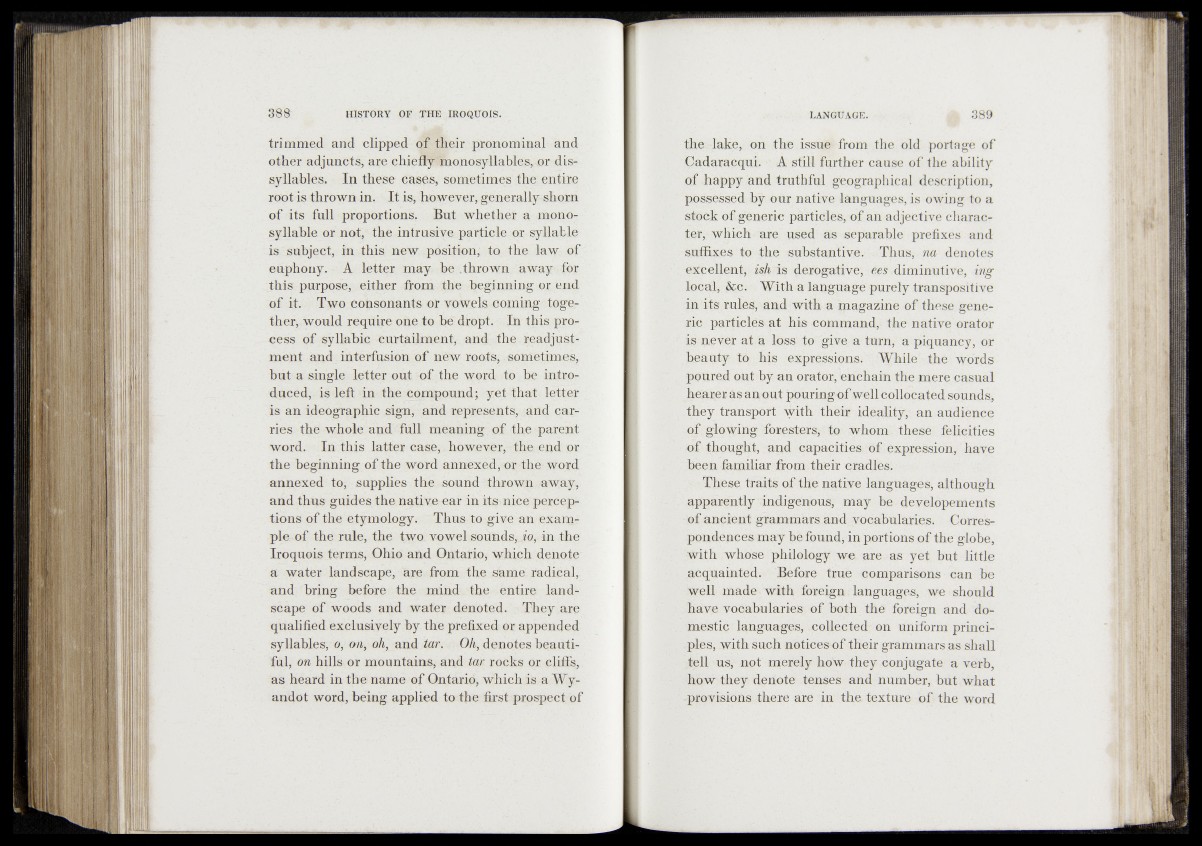
trimmed and clipped of tlcir pronomina! and
other adjuncts, are chie:^^Qonos^llables,Nor dis-
syllables. In these cases, sometimes the entire
root is thrown in. It is,bcwever, generally-shorn
of its full proportions. But whether a monosyllable
or not, the intrusive particle or syllable
is subject, in this new position, to the, law of
euphony. A letter may^ bè .thro\yn away for
this purpose, either from the beginning Or: end
of it. Two copsonanfs or vowels-coming toge,-
ther, would require one to be dropt. In tiiis, process
ment and interfusion of new roots, sometimes,
but a single letter out of the wor(l to .be introduced,
is left in the compound j -yet that letter
is an ideographic sign, and represents, and carries,
the whole and full meaning. @f. the parent
word. In this latter ease,, however, the eqd or
the beginnin g of the word annexed ,*opi-Ib^Word
annexed to, supplies the .sound thrown away-,
and thqs guides the nativerear in ifsmicAperceptions
of the etymology. Thus to ;give anexarn-
pie of the rule, the two vowclsouiids,„io,. in the
Iroquois terms, Ohio and Ontario, which denote“
a water landscape, are from the same radical^
and bring before the mind the entire landscape
of woods and water denoted. They arc
qualitied exclusively by the prefixed or appended
syllables, o, o% oh, and tar. ; Oh, denotesbeautiful,
on hills or mountains, and tar. rocks or cliffs,
as heard in the name of Ontario, which is a Wyandot
word, being applied to the first prospect; of
ffic.lake, on the issu-e- from the old portage of
Cadaraequi. A still further cause of the ability
of .happy and truthful geographical description,
possessedrby our native languages, is owing to a
stock of generic pdrticles, of an adjective character,
which "are used as separable prefixes and
suffixes to the .’substantive. . Thus, na denotes
excellent, is derogative; éex. diminutive, ing
local, <&c. With a language purely transpositive
in its,rules, and with a magazine of these, generic
particles at his command, the native orator
is never at a loss to 'give a turn, a piquancy, or
beauty tos his expressions. While’ the words
poured out by an orator, ehchain the mere casual
hearer as an o ut pouring of well collocated sounds*
.they transport with their ideality, an audience
of glowing dbresters,' to whom these felicities
of thought, and capacities,;of expression, have
“been familiar ffom their cradles.
These, traits of the native languages, although
apparently indigenous, may be developements
of ancient grammars and vocabularies. Correspondences
may befonnd, in portions of the globe,
with whose philology we are as yet but little
acquainted. Before true comparisons can be
well made- with foreign; languages, we should
have vocabularies of both; the foreign and domestic
languages, collected on uniform princi-
pleSj With such noticeaof their gram mars as shall
tell n§> not merely hoW they conjugate a verb,
how they deilote tenses and number, but what
-provisions there are in the. texture of the word